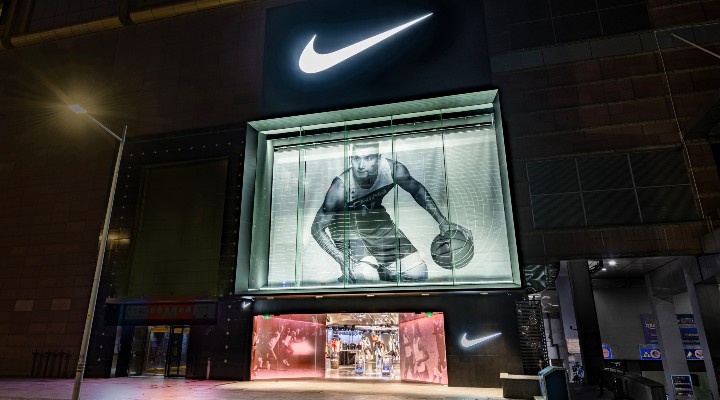Leading retailers Nike and Puma have committed to ending the use of kangaroo skin in the production of their shoes, following a campaign by the Center for a Humane Economy. Nike will replace kangaroo leather with a synthetic material, after the practice generated backlash from consumer and animal rights groups A spokesperson for Nike told Inside Retail that the organisation had divested from its only kangaroo leather supplier in 2021, and will stop making any product with the material in 2
l in 2023. The move also follows a bill that was introduced in January in the US state of Oregon, where Nike is headquartered, which proposed a ban on kangaroo products.
But the decision is not without consternation, with the transition away from the kangaroo skin denounced by key players in the industry. Concerns have also been raised over the environmental impact of the synthetic material that will be used as a replacement.
Packer Leather chairman Lindsay Packer recently told Smart Company that 95 per cent of the kangaroo leather comes from culled animals going to the pet food industry.
Kangaroo Industries Association of Australia president Ray Borda also told the ABC that the industry was a more sustainable option for leather goods than cattle and sheep, with kangaroos producing one-third of the carbon footprint.
President of the Center for a Humane Economy, Wayne Pacelle told Inside Retail that the organisation launched the Kangaroos Are Not Shoes campaign in 2020, following the bushfires in Australia that harmed three billion animals on the continent.
Pacelle said that the Center for a Humane Economy wanted to halt the preventable and additional threat posed by commercial shooters.
He added that the organisation had convinced three of the four top sellers of football books, Nike, Puma and Diadora, to stop purchasing and using kangaroo skins.
The Center for a Humane Economy is now focused on getting Adidas and New Balance on board with the initiative. It then plans to move on to the remaining shoe sellers that don’t have a kangaroo-skin-free policy. This might include R.M Williams, which has a signature range of kangaroo belts and boots.
“We hope that the shutdown of these foreign markets will cause the commercial kangaroo shooting and processing industry to fold,” he said.
Meanwhile, Anna Forster, “chief sustainability nerd” and co-founder of The Purpose Agents, said that it is a rather complicated and multi-faceted issue.
“It will likely be received positively by the general public, especially overseas, which is likely the key customer group of concern,” Forster said.
She added that pressure from environmental groups can be an effective way to instigate change in the fashion movement, pointing to bans on exotic skins and furs, where animals were purely bred for their skin. Brands including Chanel, Armani, Burberry and Gucci no longer engage in this practice.
“I think the decision [by Nike and Puma] is more based around the concerns within the general public, and associated sales with that,” she said.
“I think there is a good chance this will have an overall positive sales outcome through the general public for these brands.”
Humane corporate policies
Some argue that less demand for kangaroo leather will have a counterintuitive effect on the welfare of the species.
“The commercial kangaroos industry has been shrinking for a while, and statistics show that this has led to an increase in amateur killing […] under the premise of keeping kangaroo populations in check and limiting interference with agricultural/livestock areas,” Forster said.
“One could argue that unregulated shooting of kangaroos outside of the control of the code of the commercial harvesting program might lead to less stringent ways of killing, considerable wastage, and ultimately worse outcomes for animal welfare.”
However, Pacelle doesn’t buy this argument.
“It is hard to believe anyone could say that killing 1.5 million adult kangaroos and orphaning as many as 800,000 joeys is anything but cruel and detrimental to these individuals,” Pacelle said.
“Most people have no idea these companies are driving the slaughter of kangaroos for shoes. Once they become alert to this cruel and gratuitous killing of kangaroos, they are horrified.”
He believes that the shoe companies are doing “pioneering work” in sustainable fabrics, with many committed to low-impact alternative fabrics.
However, synthetic materials are typically carbon intensive and can be a source of microplastic pollution, which can be particularly harmful for marine life.
Forster explained that most synthetic materials intended to replace leather contain a significant amount of plastic, derived from petrochemicals, which often contain traces of toxic chemicals.
“What is more, none of the synthetic materials used at scale to this day are biodegradable,” she said.
Voting with their wallets
On whether consumer attitudes to sustainability and animal rights are changing, Forster believes that consumers are demanding climate-friendly, sustainable and ethical production practices.
She added that they are voting for this change with their wallets.
“This trend is only picking up speed,” Forster said.
“I am hopeful that this will pave the way for further regulation [and] eventually bring the laggards in the industry along for the journey.
“More environmentally conscious consumers, and younger ones tend to be, are key to driving this change,” she said.

